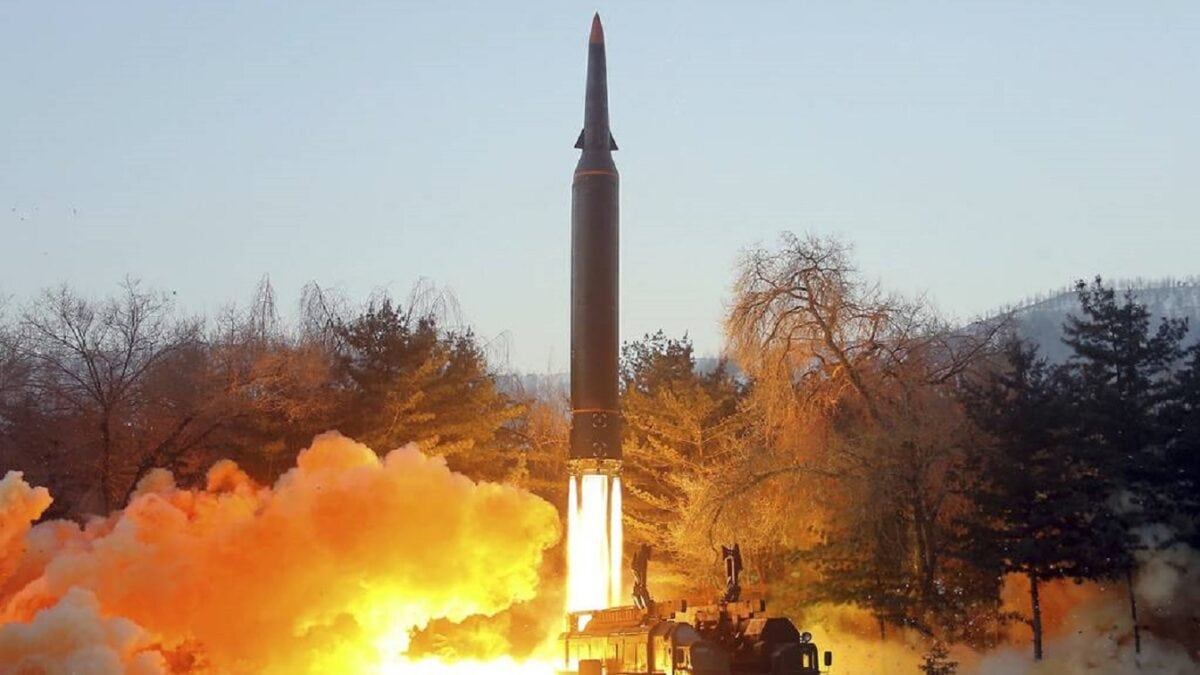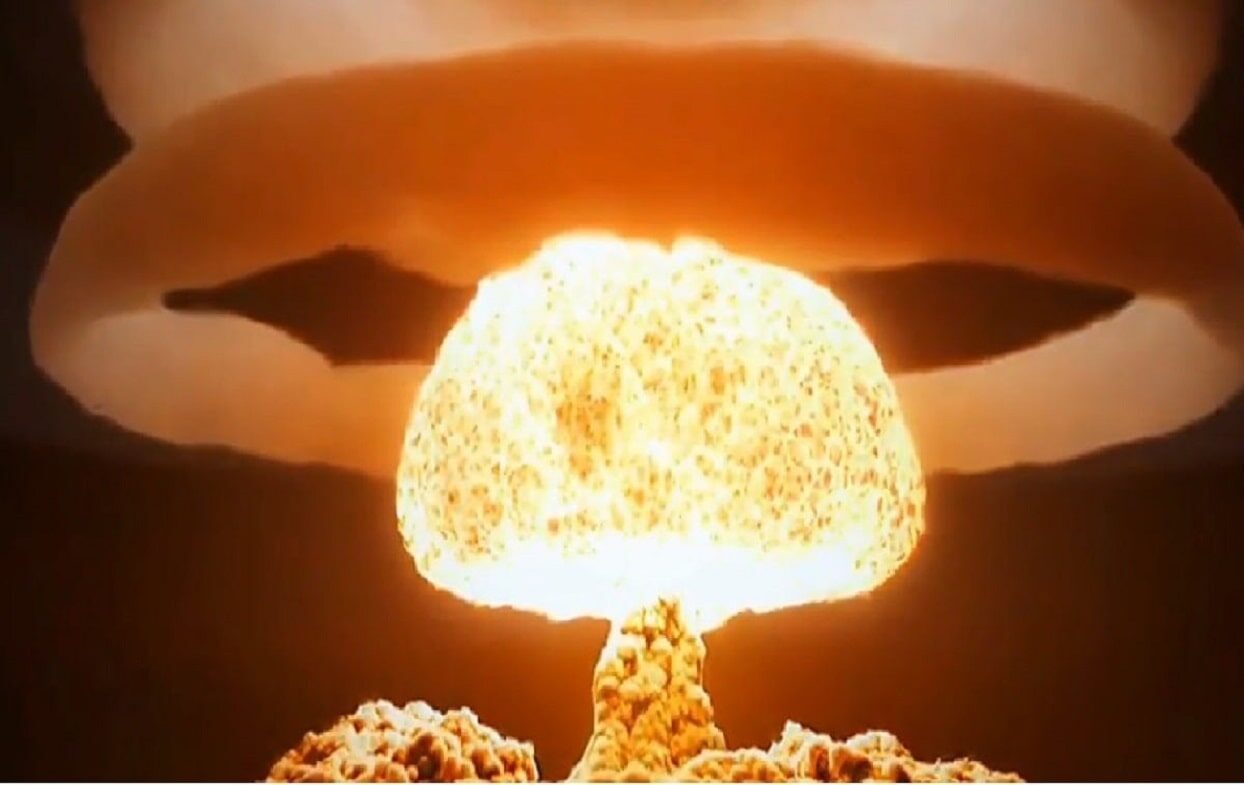Rogue States Win if Russia uses Nuclear Weapons in Ukraine: Great anxiety has arisen because of Russian President Vladimir Putin’s oblique nuclear threats in the Ukraine war. There has been much talk of an escalating nuclear conflict with the West. Even Ukrainian President Volodymyr Zelensky seems to think this possibility is substantial. Such a strike would have major implications around the world, particularly for weaker countries with – or considering – nuclear weapons. If Russia normalized the use of nuclear weapons on the battlefield, these weaker states, who suffer from major conventional disadvantages, could see an opening to use their own nuclear weapons in conflict to equalize the playing field with their competitors.
Putin is Unlikely to use Nuclear Weapons
Scenarios about the ‘day after’ a nuclear strike – what ramifications there would be for future conflict – depend on first use by a major nuclear power, which all have pledged to avoid barring existential threats to the homeland. Russia does not face this in Ukraine. Defeat in Ukraine, and national and personal humiliation for Putin, is not the same as a Ukrainian threat to the integrity of the Russian state. Were Putin to go nuclear anyway, the geopolitical blowback would be massive.
Further, it is not clear what target in Ukraine is large and important enough to run such a risk. To affect the course of the actual conflict, the Russians would need to hit a target near the frontlines. That in turn would endanger Russian forces themselves. Finally, only a massive, strategic nuclear strike on a Ukrainian city would terrorize Ukraine into surrender. In the face of a low-yield battlefield nuclear use, Zelensky would likely keep fighting.
Only a move akin to nuclear genocide might actually push the Ukrainians to give up.
Great Powers like the Nuclear Taboo
But if Russia did take this step, other states would benefit from Putin’s breaking of the ‘nuclear taboo.’
Russia itself would be severely penalized. China, India, and third-world neutral states would drift away from it. NATO would almost certainly enter the fight, potentially in direct ground conflict with Russia if it nuked a city and killed hundreds of thousands of people. Russia would be expunged from much of the global economy, and its citizens would be pariahs around the world. Its isolation would last a decade or more.
Strong states too would not benefit from the breaking of the taboo. Powerful states like the US, China, Europe’s largest countries, Japan, and so on, do not need nuclear weapons for many purposes. Indeed, they have them really for one purpose – to deter other states from using nukes against them. (Germany and Japan live under the US nuclear umbrella, ‘borrowing’ deterrence from the Americans.) There is no other point in possessing these weapons.
The great powers, by definition, are already conventionally powerful. They can fight traditional conflicts reasonably well and hope for victory. They are also strong enough that they can survive a defeat – such as the American loss in Vietnam and Iraq – and move on. Conventional conflicts are rarely existential for great powers. So they are content with the nuclear taboo, as it sidelines all sorts of frightening escalatory possibilities, and buttresses their conventional dominance in world politics.
The Nuclear Taboo Punishes Rogue and Weak States
By contrast, the countries which would benefit the most from a Russian nuclear strike are the weakest ones who nonetheless have nukes (or want them) – specifically North Korea, Pakistan, and Iran. All of these countries in locked in contests with conventionally superior opponents:
South Korea alone outweighs North Korea economically and conventionally militarily; with US alliance assistance, the power gap is yawning.
Pakistan faces a massive challenger in India. It is conventionally outgunned, and it is political riven and economically sclerotic in comparison.
Iran, as a Shiite state in a mostly Sunni region, faces a massive counter-coalition, plus the hostility of Israel and the US.
Given these intense security dilemmas, North Korea and Pakistan have built nuclear weapons, and Iran is close. These powerful weapons help equalize conventional inequalities, plus they deter a first strike by the other side.
Normalization of Battlefield Nuclear Weapons Helps Rogue States
Nuclear weapons could also help rogues win a battlefield conflict if nukes could be used like traditional weapons. If North Korea could nuke massed formations of the South Korean army, it might conceivably win a second Korean war before the Americans could arrive in large numbers and without a strategic strike on the United States.

North Korean Missile Launch. Image Credit: Creative Commons.
Here the nuclear taboo harms the rogue state. It acts as a powerful disincentive to use a battlefield nuclear weapon. Who knows what will happen on the day after? Rogues are relatively weak and do not want to run the risk. But if Russia uses one first, Russia will suffer the (assumed massive) first mover penalties. Russia will be the first state to normalize nuclear weapons use on the battlefield, a condition which these countries could then exploit.
Putin likely does not care about any of this. He has been unhelpful on the North Korean and Iranian nuclear programs, and Russia’s strategic needs will drive his decision to go nuclear or not in Ukraine. But there will likely be many changes in world politics on the day after. One of those will a greater willingness by other states to use nukes too. And the world’s weak nuclear states will benefit the most from that.
Expert Biography: Dr. Robert E. Kelly (@Robert_E_Kelly; RoberEdwinKelly.com) is a professor of international relations in the Department of Political Science at Pusan National University and 19FortyFive Contributing Editor.

